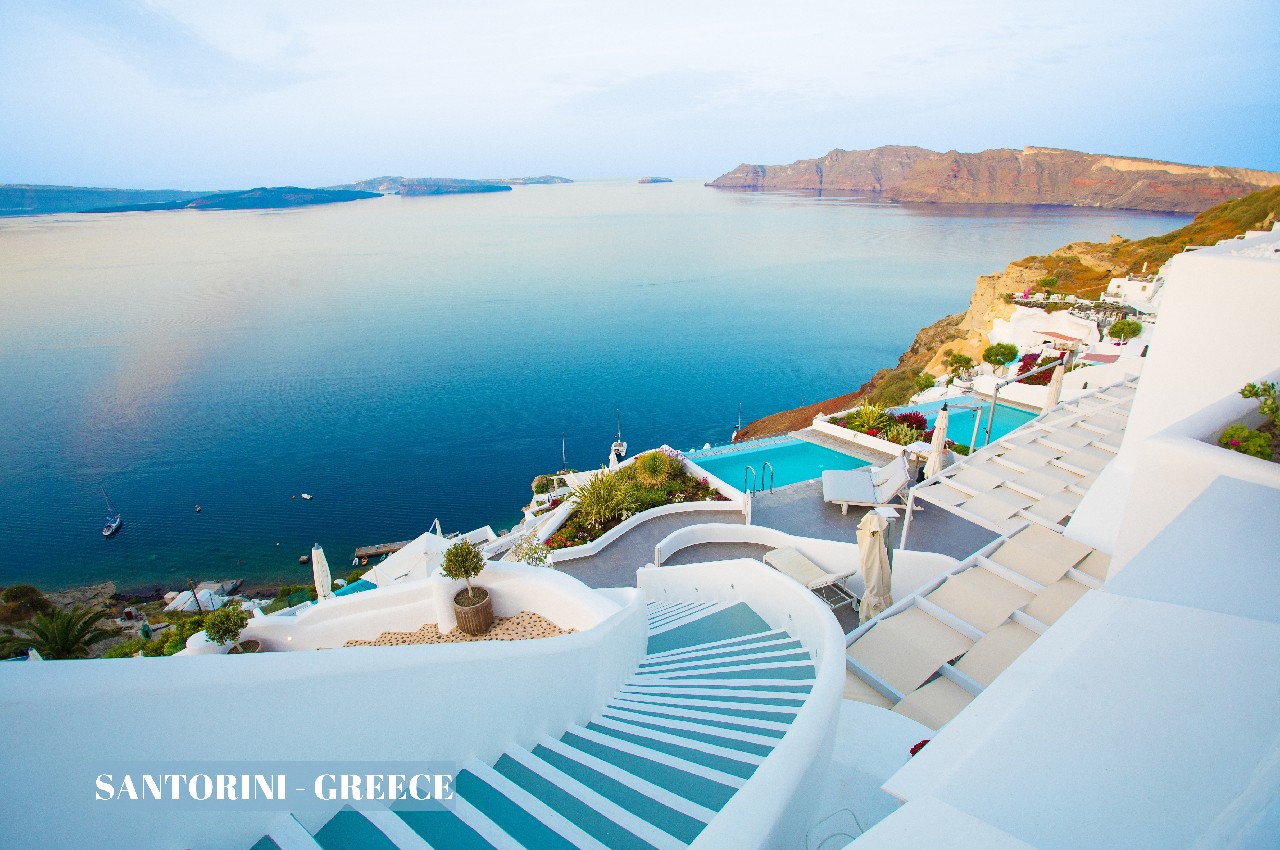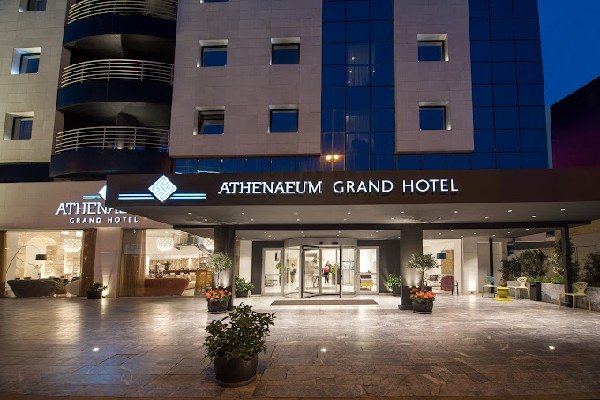
Fez Travel
Address : Hocapasa Mah. Tayahatun Sok. Sukran Han No:3,Kat:3 - Istanbul/TurkeyPhone : +90 212 520 04 34
Email : feztravel@feztravel.com
Web : www.feztravel.com
Greek Island Explorer Tour
Tour Link : https://www.feztravel.com/fez/greek-island-explorer-tour_TC_GIEX
Emergency Contact
Travel Zone - Effie +30 698 97 16 199
Head Office (Turkey) Pinar: +90 533 280 77 39 or Canan: +90 532 374 49 51
| Table Of Contents | ||
|---|---|---|
| Emergency Contact | ||
| Hotels used on this tour | ||
| Weather | ||
| Optional Tours | ||
| Tipping | ||
| Money | ||
| General Info |
Hotels used on this tour
The following hotels are used on this tour for departures and pre/post tour accommodation within the given date ranges. They are also the default hotel for pre/post tour accommodation on tours that don't include accommodation, such as day tours. This is intended to give an idea of the type of accommodation that may be expected. The actual hotels used for any given tour may change due to many reasons such as group size, availability, time of year, hotel standard has dropped or simply we found a better hotel. If we do change hotels it will be to a hotel of equal or higher standard and will be at no extra cost. Where more than one hotel is shown for a given an overnight stop this means that one of those hotels will be used.
Golden Age Hotel
|
Address : City : Athens Suburb : Phone : Web : https://hotelgoldenage.com/ |

|
Aegean Plaza Hotel / Rose Bay Hotel
|
Address : City : Santorini Suburb : Phone : Web : |

|
Vienoulas Garden Hotel / Manoulas Beach
|
Address : City : Mykonos Suburb : Phone : Web : |

|
Athenaeum Grand Hotel
|
Address : City : Athens Suburb : Phone : Web : https://athenaeumgrand.com.gr/portal/ |

|
Weather
| City | Month | Max F | Max C | Sun Hours | Min F | Min C | Rain Days |
|---|---|---|---|---|---|---|---|
| Athens | January | 55 | 13 | 4 | 43 | 6 | 16 |
| February | 57 | 14 | 5 | 45 | 7 | 11 | |
| March | 61 | 16 | 6 | 46 | 8 | 11 | |
| April | 68 | 20 | 8 | 52 | 11 | 9 | |
| May | 77 | 25 | 9 | 61 | 16 | 8 | |
| June | 86 | 30 | 11 | 68 | 20 | 4 | |
| July | 91 | 33 | 12 | 73 | 23 | 2 | |
| August | 91 | 33 | 12 | 73 | 23 | 3 | |
| September | 84 | 29 | 9 | 66 | 19 | 4 | |
| October | 75 | 24 | 7 | 59 | 15 | 8 | |
| November | 66 | 19 | 5 | 54 | 12 | 12 | |
| December | 59 | 15 | 4 | 46 | 8 | 15 |
Optional Tours
Please note that all optional tours are payable in cash (Euro or USD). Credit card payments are also accepted, but an additional surcharge fee will apply.
The list of optional tours provided below serves as a general reference for experiences available in each city in Turkey. However, some of these tours may already be included in your itinerary. This list is a standard compilation of optional tours and not all options may apply to your specific tour package.
We strive to keep tour prices accurate and up to date. However, please be aware that:
- Prices are subject to change without notice.
- Some tours are operated by third-party providers, and as such, we cannot guarantee fixed rates.
- The prices listed are meant only as a guideline and should not be considered final.
Your tour guide will provide the most current pricing information during your trip. Also, please note that tipping is not included in the listed prices.
Athens
Half Day Acropolis tour
Your Athens city tour starts from the Panathenaic Stadium, where the first Olympic Games of modern times were held in 1896. Continue and pass by the Temple of Olympian Zeus, Hadrian's Arch, the Parliament buildings and the memorial to the Unknown Soldier, the Academy, the University, the National Library and Constitution Square (Syntagma). At the Acropolis visit, the Propylaea, the Temple of Athena Nike, the Erechtheion and finally 'the harmony between material and spirit', the monument that 'puts order in the mind', the Parthenon.
Tipping
Tips are common place for table service in Greece. Restaurants and taxis, local markets and basic restaurants - leave the loose change. More up-market restaurants we suggest 5% to 10% of your bill. If you think your tour leader has worked hard then s/he will appreciate a tip of a few Euros. You do not need to tip the service staff at the hotels.
Money
The monetary unit in Greece is the Euro (EUR). 1 Euro = 100 Euro cents.
You should always carry back up cash or card separate to the rest of your money and cards. So if you loose your wallet or handbag, you have enough back up money to at least make some phone calls and eat for a few days.
Euro is the currency of Greece since 1 January 2001. Credit Cards and Travellers Cheques are widely accepted in major cities and tourist resorts. ATM's are also accessible at all our destinations and offer the best exchange rate. A mixture of debit, credit cards and cash are the are the best forms of currency.
It is difficult for us to specify the money that you will spend per day, however, as a general rule EUR 4 to EUR 5 per day can provide you with additional meals and optional entrances. Should you wish to purchase souvenirs or other luxuries, of which there is a diverse range, you will have to budget for these.
Exchange rates used throughout this document are correct as at Thu, 17 Oct 2024 05:55:03 GMT
General Info
Having exported chaos, drama, tragedy and democracy before most nations stayed up late enough to want souvlaki, Greece boasts a legacy that's unrivalled. From smoggy Athens to blindingly bright islands, there are more ancient fragments than you can shake a stick at: the mother of all ruins - the Acropolis, fallen columns galore on the sacred island of Delos and even, quite possibly, the remnants of Atlantis at Santorini. Greeks also know how to have fun - their propensity for partying dates back to Dionysos. In addition, hot sun and limpid seas conspire to make Greece a compelling place to relax. Whether you're chillin' in a beachside taverna, sipping coffee in a shady plateia or disco-dancing till dawn, chances are the Gods already have you ensnared.
Geographical area
131,957 square kilometers.
Population
10,760,136 (July 2011 est.). Athens (capital) 3.252 million; Thessaloniki 834,000 (2009).
International dialling code
International dialling code: +30
Time Zone
Greece is 2 hours ahead of Greenwich Meant Time. During day light saving, which is from the last Sunday in March to the last Saturday in October, Greece is 3 hours ahead of GMT.
Electricity
All appliances need a double round pin type plug for 220 volts AC, 50-hertz.
Religion
Greek Orthodox (official) 98%, Muslim 1.3%, other 0.7%
Language
The Greek language with a documented record spanning three and a half millennia is a strong element of national continuity. Modern Greek derives from the same idiom used by Homer. The Greek alphabet and the Greek language have contributed much to all Western languages. In this respect Greek, is to be distinguished sharply from Latin, which generated numerous neo-Latin languages from Rumanian to Portuguese before itself became extinct. You'll find you won't have much of a problem with the language barrier. English is well communicated by many Greeks, especially in the Islands.
Eating and Drinking
Its unique tastes are some of the things that set Greece apart. You are in for pleasant culinary surprises while in this country. Contrary to common belief you will soon discover that Greek cuisine does not solely consist of mousaka, souvlaki and horiatiki salata. Greek cuisine has a great variety of dishes and can be an extremely satisfying culinary adventure for both meat-eaters and vegetarians.
Greek cuisine is a Mediterranean cuisine, sharing characteristics with the cuisines of Italy, the Balkans, Turkey, and the Levant. Contemporary Greek cookery makes wide use of olive oil, vegetables and herbs, grains and bread, wine, fish, and various meats, including poultry, rabbit and pork. Also important are olives, cheese, eggplant (aubergine), courgette, and yoghurt. Greek desserts are characterized by the dominant use of nuts and honey. Some dishes use filo pastry.
Mezes is a collective name for a variety of small dishes, typically served with wines or anise-flavored liqueurs such as ouzo or homemade tsipouro. Orektika is the formal name for appetizers and is often used as a reference to eating a first course of a cuisine other than Greek cuisine. Dips are served with bread loaf or pita bread. In some regions, dried bread (paximadhi) is softened in water.
The national drink is Ouzo. Ouzo, an 80-proof clear alcoholic beverage that is flavored with anise; it turns milky white with water or ice; the best said to be produced on the island of Lesbos. We always recommend drinking 'bottled' water.
Meal for 2 persons, Mid-range Restaurant, Three-course EUR 30.
Cup of Coffee / Cappuccino (regular) EUR 3.
Domestic Beer (0.5 litre draught) EUR 4.
Please Note
It is important to note that the Greece component of this trip is escorted by a tour leader, whilst the Turkey component of your trip is escorted by a tour guide. There are important differences between these two roles, and understanding these will help you get the most out of your trip.
A tour leader travels with the group and will provide information regarding optional activities and day tours and will book these for you. Your tour leader acts as a facilitator, and will take care of any logistical issues such as the purchase of ferry tickets and hotel check-ins, and trouble shoot any problems that may arise on tour. Your tour leader will not guide you around historical sites but may give some cultural information and information about the best places to go in your free time. Some of your optional activities in Greece may be accompanied by a tour guide.
A tour guide is a licensed, qualified expert, and is generally a specialist in history and archaeology, and sometimes architecture. A tour guide will guide you around historical sites, providing historical and cultural information in addition to being responsible for the smooth running of your trip. In Turkey, a tour guide will accompany you for your whole trip, guiding you around sites, taking care of logistical issues and will also help you to book any optional activities.